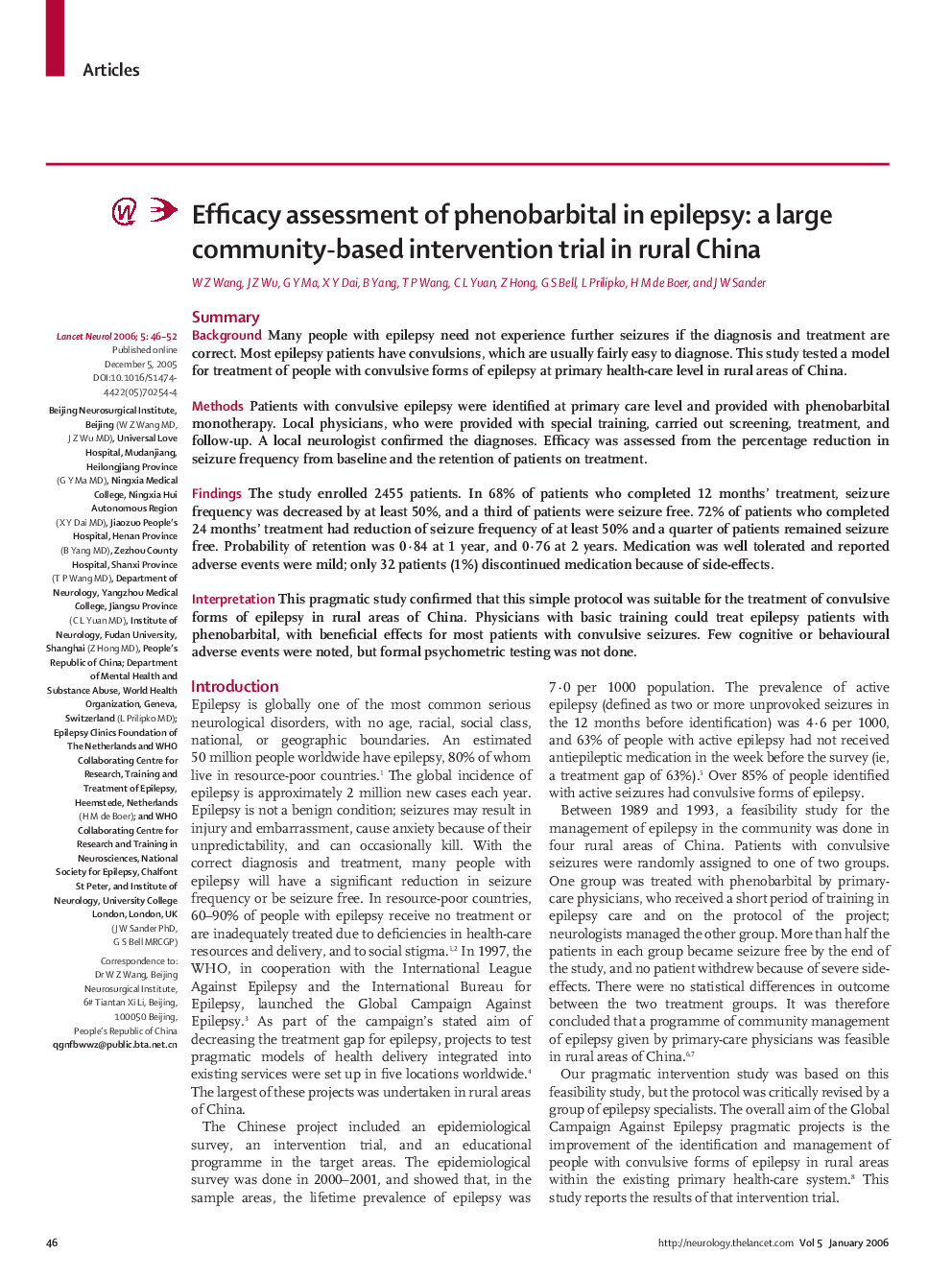| Article ID | Journal | Published Year | Pages | File Type |
|---|---|---|---|---|
| 3068095 | The Lancet Neurology | 2006 | 7 Pages |
SummaryBackgroundMany people with epilepsy need not experience further seizures if the diagnosis and treatment are correct. Most epilepsy patients have convulsions, which are usually fairly easy to diagnose. This study tested a model for treatment of people with convulsive forms of epilepsy at primary health-care level in rural areas of China.MethodsPatients with convulsive epilepsy were identified at primary care level and provided with phenobarbital monotherapy. Local physicians, who were provided with special training, carried out screening, treatment, and follow-up. A local neurologist confirmed the diagnoses. Efficacy was assessed from the percentage reduction in seizure frequency from baseline and the retention of patients on treatment.FindingsThe study enrolled 2455 patients. In 68% of patients who completed 12 months' treatment, seizure frequency was decreased by at least 50%, and a third of patients were seizure free. 72% of patients who completed 24 months' treatment had reduction of seizure frequency of at least 50% and a quarter of patients remained seizure free. Probability of retention was 0·84 at 1 year, and 0·76 at 2 years. Medication was well tolerated and reported adverse events were mild; only 32 patients (1%) discontinued medication because of side-effects.InterpretationThis pragmatic study confirmed that this simple protocol was suitable for the treatment of convulsive forms of epilepsy in rural areas of China. Physicians with basic training could treat epilepsy patients with phenobarbital, with beneficial effects for most patients with convulsive seizures. Few cognitive or behavioural adverse events were noted, but formal psychometric testing was not done.
